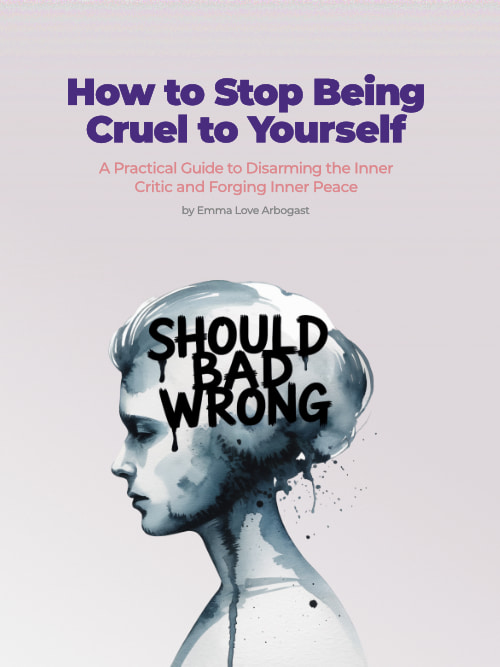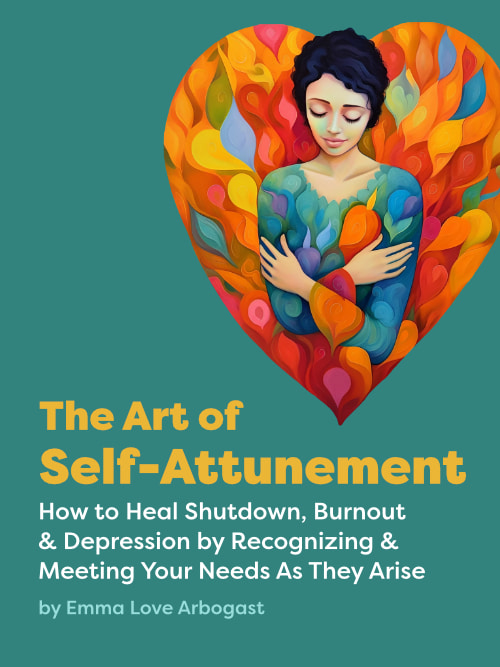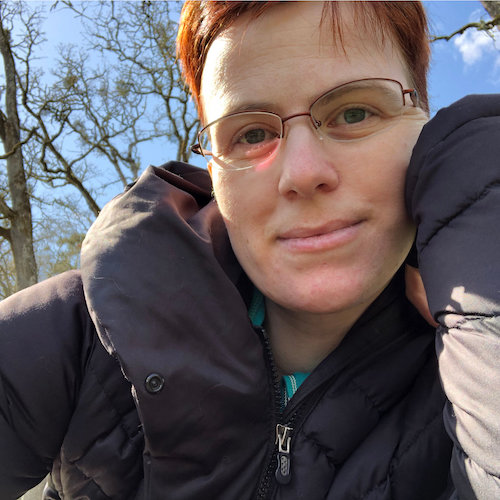How to Heal Hypervigilance and Learn Inner Peace & Calm
Those who grow up in an environment that is not safe (whether physically or emotionally) develop a heightened sense of threat. They learn to scan the environment for potential danger, and react defensively.
As an adult, this can continue as a chronic sense of fear and a predisposition to overreact and take things personally, especially in intimate relationships. We carry the war with us.
We Make Up Stories That Make Things Worse
A new friend cancels your plans to meet for lunch. You start wondering why. You scan over your last few interactions. You start obsessing. Pretty soon you are convinced that she is judging you.
Taking things personally can be very painful. If we already believe that people might reject us, or we believe we have certain flaws, others words and actions can seem to confirm them. Because we are prepped to hear slights or blame, we react as if it is true and as if it is truly threatening.
In reality, either your friend is judging you or not. You can ask and find out. But even if they are, it is not as life-threatening as it can feel.
We Are Still Seeing Out of a Child’s Eyes
As a child, emotional hurt like being judged or blamed signals a threat of abandonment. Because children cannot fend for themselves, their systems take it as a threat to their life. It’s serious.
As an adult, we can learn that others opinions of us will not kill us. Their moods, their judgements, their feelings and thoughts are their own. They don’t literally threaten us.
The perspective of a child to a threat is different than the perspective of an adult to that same threat. The same threat becomes smaller as we grow larger. What is stuck is our perception of the potential hurt. Yes, it is painful when we hear judgement or blame. But it no longer has to feel like it threatens our survival.
Relaxing Hypervigilance Takes Time
You won’t magically stop caring what people think, and then breeze through all your relationships. It’s not as simple as knowing that the threat isn’t real.
It takes time and persistence to retrain your brain to perceive input differently. Because the threats were very real at one time, your brain grooved those pathways in to protect you. So give yourself a break. Expect slow and steady progress instead of overnight transformation.
Affirmations and Self-Talk Can Rewire the Brain
These aren’t affirmations to make you feel better or more powerful. They are grounding statements designed to correct a tendency for your brain to misinterpret data. They are more about noticing what is true.
When you feel yourself start to analyze, obsess, worry, defend, attack back, retreat, or make escape plans, try these statements out.
My feelings are not always in proportion to the situation. So I might be making a bigger deal out of this than I need to.
Others actions are probably more about them than me.
I’m actually OK. I’m not in danger here.
Questions can also help invoke the adult self.
What is feeling threatening here?
What do I need—what would help me feel safe and OK right now?
As you talk to yourself and work to mentally re-assess the situation with a clearer perspective, take deep breathes. Engage your body in a way that helps you relax and release stress and anxiety. Take a walk, talk a bath. Do something that makes you feel safe and warm and cozy. Remind your body that you are actually safe now.
Working with the body is essential because fear and emotional responses are stored in the body. It’s not enough to tell yourself you are OK—you need to start having new experiences that overwrite the old ones.
We Can Survive Our Own Feelings
The hardest thing about healing is learning to manage overwhelming feelings.
“Manage” is a complex word. A good manager provides boundaries and structures, but does not control or force those who work under them. Similarly, to manage our feelings we need a gentle but firm hand. We need to keep the wider perspective in mind while attending to the needs of the moment. We need to be a loving parent to our own small selves.
We do this by developing a part of ourselves that can watch over the emotional self as it goes through its ups and downs. This “Witness Self” can be objective and neutral, and provide a supportive voice and compassionate presence to ourselves when we encounter situations that trigger us.
We Can Learn to Find Peace In Any Situation
As children, we yearned to feel a relaxed sense of feeling safe, loved, and cared for.
As adults, we still seek this. But we often find that we are blocking it ourselves. After searching and searching for people to love us the right way and say (or not say) the right things, we find that we have built a small world to live in—a world that we can control.
To expand that world and create true freedom requires us to become OK with more circumstances. Instead of wanting the world to conform to our wishes and never threaten us, we have to learn to become resilient and not be blown about by every wind. We need to adjust our threat-meters and realize that even though many people make mistakes and accidentally say things that hurt us, they are not out to make us feel helpless or powerless. They are just doing the best they can, and so are we.
The final step to peace is realizing that the war is over; we can create a life we enjoy now.
Recommended further reading:
- How to Meet Your Own Emotional Needs with Self-Validation
- Limbic Templates: How to Rewire Deep Patterns
- Non-Sucky Affirmations
Self-love is a set of skills you can learn

Stop Being Cruel to Yourself
$2.99


Hey there! If you're new here, welcome to the Emmaverse! 🌈✨
About me: I'm autistic/ADHD and I write about how to be free and happy from the inside out.
Keep in touch?
Self-Liberation Society

Wonderful article. Thank you.
This helped me so, so much tonight.
This article was filled with useful and thought-provoking information. I was able to make positive shifts in my prespective and felt relieved from pent-up emotions and anxiety .
Thank you.
A revelation!
Even my hyper-vigilant self protective brain felt that your article actually helped me.
I googled ‘hypervigilance’ and landed on your page. Thank you VERY much for your article. You made my feelings ok. That really helps alot.
About 2 and a half years since this page was put up. It makes me sad and relieved at the same time. I am 55 years old and have been hyper-vigilant for over 40 of those years. I know what works. I just need to work it, instead of sedating myself. Thank you for the reminder.
Powerful article. Thank-you profoundly for your insight.
Thank you : )
I appreciated that I was able to identify with the article without feeling crazy.
Thank you so much for this article. I have pasted your recommendations into a notes page so I can access them when things are getting tough. I think I have been Hypervigilance for a very long time. The current acute episode is making me exhausted on adrenaline overload. I am going to work on it.
Thank you so much for posting this, it responds to me on a deep deep level. I have just realized my hyper vigilance about eight months ago, although I have had it my entire life. this article really makes me feel like something can be done.
greatly appreciated 🙂
Tremendous article. I’ve known my whole life something was awry, but only recently have been made aware of hypervigilance and that it is what I have experienced for so long. This article is superbly written – actually reminds me of Pema Chodron’s writing. Thank you.
High praise, thank you!
WOW those affirmations triggered a threat response. They sound too much like the gaslighting I heard most of my life. It sounds too much like the stories I would tell myself when I was in an unhealthy relationship instead of really listening to my body. But, maybe Instead of making these a statement I need to make them a question, while trying to get a grip on the constant tension and generalized anxiety I feel.
Yeah, I can see how they might sound that way if you have that history. The advice here presupposes that you are not currently in danger and the statements are meant to ground you in a felt sense of present-moment safety. I definitely was not meaning for them to be used to try to be OK with something that is not actually safe, to talk yourself out of your feelings, or to override your body’s wisdom. They are meant to be an internal prompt to check in with a grounded sense of reality. I think questions are a great option–whatever works to help you check in with what is actually true and what you are actually needing in the present moment.